Photo: Robert Gauthier / Los Angeles Times via Getty Images
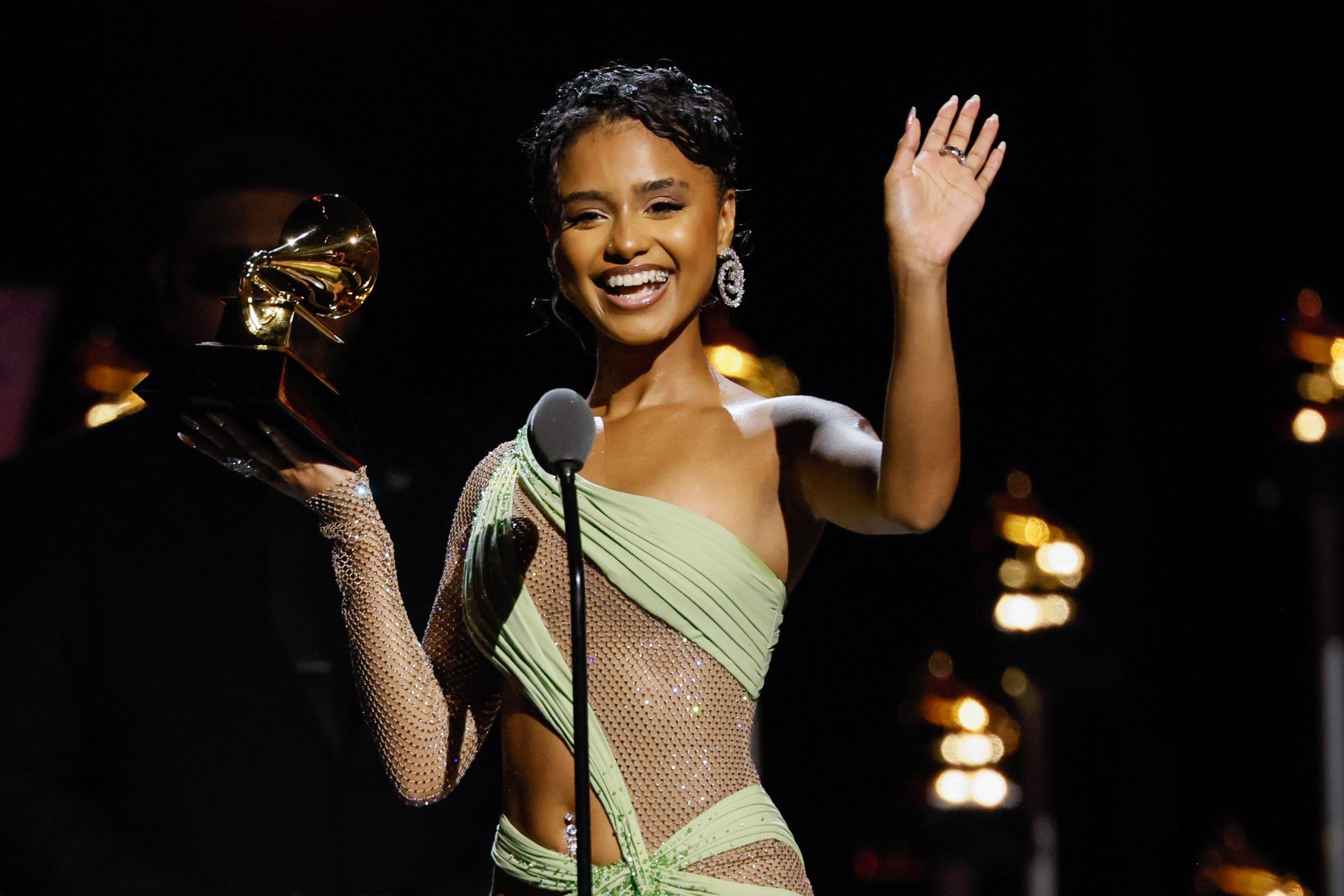
news
2024 GRAMMYs: Tyla Wins First-Ever GRAMMY Award For Best African Music Performance
"I never thought I’d say I won a GRAMMY at 22 years old," the South African singer said. Although coming up against stiff competition, including massive Afrobeats stars Burna Boy and Davido, Tyla's hit song "Water" proved undeniable for GRAMMY voters.
Tyla has taken home the golden gramophone for Best African Music Performance — an all-new category — at the 2024 GRAMMYs, for "Water."
The South African starlet came ahead of ASAKE & Olamide ("Amapiano"); Burna Boy ("City BoysMiracle"); Davido Featuring Musa Keys ("UNAVAILABLE"); and Ayra Starr ("Rush").
The 22-year-old singer was taken aback upon winning the trophy, which was awarded by Jimmy Jam during the GRAMMYs Premiere Ceremony.
"What the heck?!" she declared once on stage. "This is crazy, I never thought I’d say I won a GRAMMY at 22 years old."
Although coming up against stiff competition, including massive Afrobeats stars Burna Boy and Davido, the massive appeal of Tyla's hit song "Water" proved undeniable for GRAMMY voters. The amapiano-based pop song entered the Billboard Hot 100 last year, the first for an South African solo artist since Hugh Masekala in 1968. It later peaked at No. 7, making her the highest-charting African female solo musician in Billboard history. The song also went to No. 1 on the Billboard U.S. Afrobeats Songs and Hip-Hop/R&B charts.
Tyla shouted out her family during her acceptance speech, saying "I know my mother’s crying somewhere in here."
Tyla makes history as the first-ever Best African Music performance winner. The category was created in order for the Academy to honor music from the continent, according to Academy President Harvey Mason Jr.
"I'd love to see us be able to honor even more music from Africa and other areas of the world," Mason said in an interview with GRAMMY.com. "The future of the Recording Academy is going to build on equity. We're not just honoring music breaking in our country — we're celebrating music from around the world."
Keep checking this space for more updates from Music’s Biggest Night!
2024 GRAMMY Nominations: See The Full Winners & Nominees List (Updating Live)
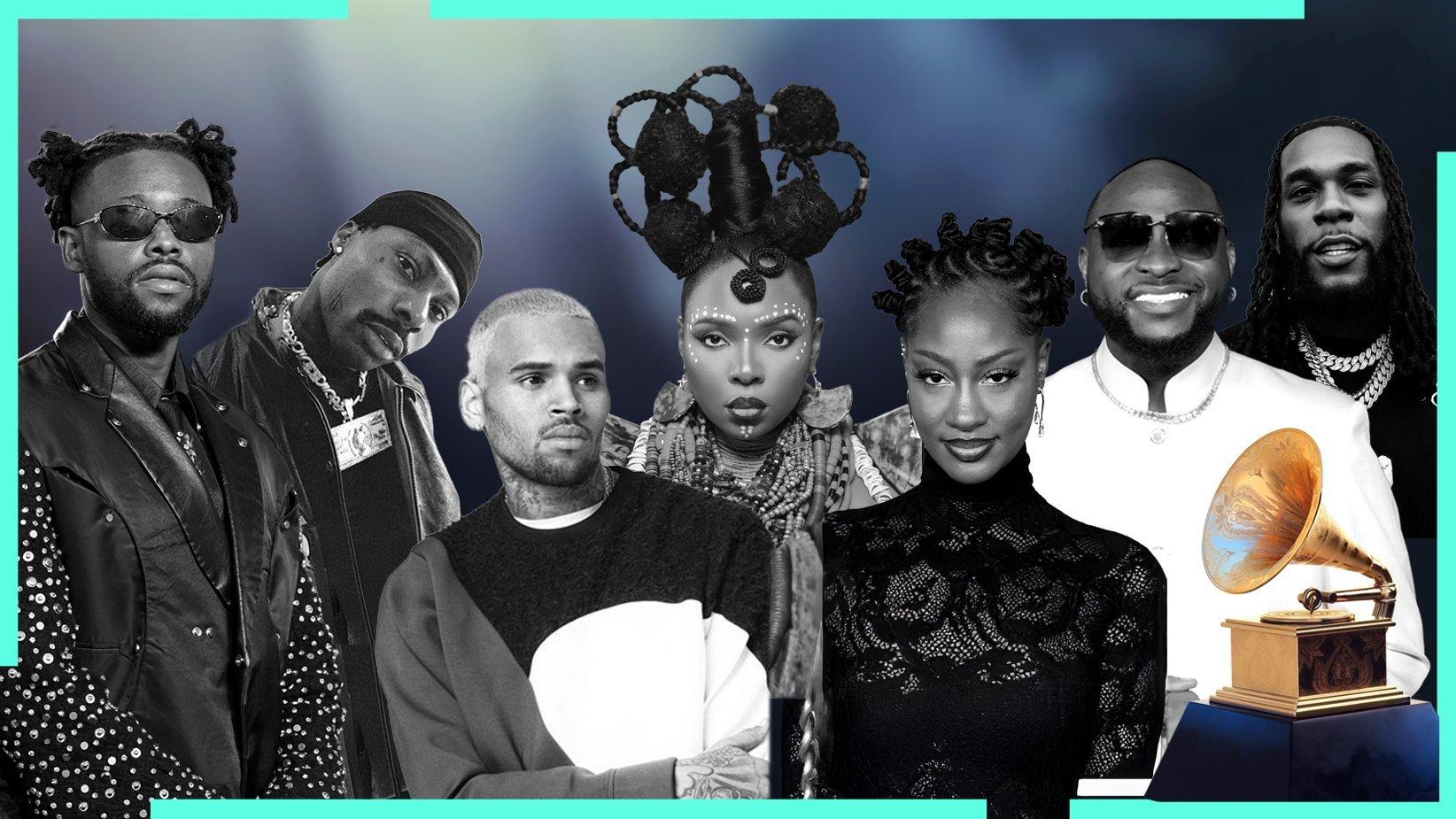
list
2025 GRAMMYs Nominations: Best African Music Performance Nominees
Burna Boy, Yemi Alade, Asake & Wizkid, Tems, and Chris Brown featuring Davido and Lojay are nominees in the second annual Category.
Earlier this year, the Recording Academy made history by awarding their first-ever GRAMMY Award for Best African Music Performance. Never before had the continent’s vibrant musical culture been given a category all their own, and the best and brightest from the African music industry stepped up to receive nominations.
The eventual victor was 22-year-old South African singer Tyla, whose bewitching song "Water" earned the hearts of GRAMMYs voters, as well as millions of listeners that boosted the song to the Billboard Hot 100. She became the first South African in 55 years to make the chart.
Read more: 10 African GRAMMY Winners Through The Years: From Miriam Makeba To Angélique Kidjo & Burna Boy
This year, Tyla will not defend her prize. But five fantastic songs from a multitude of artists, including one high-profile American that has joined up with two Afrobeats stars, will compete for the Golden Gramophone. Check out the nominees below and read the full 2025 GRAMMYs nominations list ahead of Music's Biggest Night on Sunday, Feb. 2, 2025.
Yemi Alade — "Tomorrow"
One of African pop music’ biggest stars, Yemi Alade would be a legend even without a GRAMMY nod. She first rose to fame a decade ago thanks to continental hits like "Johnny" and "Oh My Gosh" with Rick Ross. In July, she took her sound to new heights on Rebel Queen, an album incorporating genres such as highlife and dancehall for a global celebration of Black music that solidifies her reputation as "Mama Africa."
"Tomorrow," the GRAMMY-nominated song from the album, is a triumphant, bright amapiano tune, the latest result of Alade’s flirtation with the genre. Produced by Yasso and incorporating choral vocals, the lyrics in English and Nigerian Pidgin assert the singer’s unflappable confidence and self-belief. "I dance away my sorrow," she sings, "Rain or shine, I’ll be shining like a diamond."
"Tomorrow" marks the legendary artist’s first-ever GRAMMY nomination, but whether or not she grabs the golden gramophone, it’s clear from her song that nothing will phase this Rebel Queen.
Burna Boy — "Higher"
Burna Boy is such an undisputed force in African music, it’s not surprising for him to be nominated in this Category two years in a row. Already a GRAMMY winner for Best Global Music Album (Twice As Tall took the prize in 2021), his bold, American R&B-inspired "City Boys" earned a Best African Music Performance nod last year and was among a medley of tracks Burna performed on the GRAMMY stage. The braggadocious hip-hop song ultimately fell to Tyla’s "Water," however.
The success of his 2023 album I Told Them may have put Burna Boy in a more contemplative state of mind, because "Higher," his current nominated track, is a much more conscious effort. Over a mellow, amapiano-inspired beat from producer Yo Dibs, Burna reflects on his limited time on Earth and the harshness of daily life: "You know say streets don't love you rara / It's full of snakes and spiders / Make a wrong move, lose your life / Make it hard for your mother to sleep at night."
The song’s video, conceptually similar to Drake’s visual for "God’s Plan," shows the singer making an emotional visit to his hometown of Port Harcourt and distributing aid with his charity group Project PROTECT. It seems that magnanimity has already been rewarded: The song gained 1.3 million streams on Spotify in its first day of release, a new record for an African artist, and its video has been viewed over 7.3 million times as of this writing.
Chris Brown — "Sensational" feat. Davido & Lojay
It can’t be denied that Chris Brown is something of a survivor in the music industry. The GRAMMY winner for Best R&B Album (F.A.M.E.) is as famous for his hits — from "Run It!" and "Kiss Kiss," to "Look at Me Now" and "No Guidance" — as he is infamous for his checkered past.
Now he’s back in the GRAMMY spotlight with a single from his 2023 album 11:11. "Sensational" marks a bold stylistic pivot for the R&B singer as he adopts Afrobeats for a slick song that could be called, well, "breezy." Adding some African bona-fides, he’s recruited Davido — one of the genre’s most important acts and a GRAMMY nominee last year in this Category — as well as rising artist Lojay, for feature verses. The result is a transatlantic collab that makes the case that Americans can take on African genres too, with a little help from their continental friends.
Asake & Wizkid — "MMS"
In just a few short years, Asake has established himself as one of the most creative and charismatic new talents in Afrobeats. His 2023 record Work of Art blended the globally-aspirational Nigerian pop sound with South African house offshoot amapiano and the indigenous Yoruba genre fújì; Asake earned a GRAMMY nod in this category for album single "Amapiano" last year.
Asake isn’t one to rest on his laurels, however. He dropped another record, Lungu Boy, earlier in 2024, for which he switched up his sound further and recruited global stars like Stormzy, Central Cee, and Travis Scott. Single "MMS" keeps things refreshingly local in terms of guest spots, recruiting GRAMMY-winner Wizkid for the feature. Incorporating the same Yoruba-language choral vocals Asake used throughout his last album, he trades verses with Wiz over a glamorous, jazz-inflected, ‘90s R&B-inspired beat by P.Priime. The lyrics, in English, Yoruba, and Nigerian Pidgin, narrate Asake’s journey to finding his signature sound and letting fate determine his path. It’s a classy, reflective song from a pair of Africa’s biggest stars.
Tems — "Love Me JeJe"
Tems is already a GRAMMY winner and the first African artist to top the Billboard Hot 100, all thanks Future sampling her song "Higher" on his hit "Wait For U." Yet 2024 was the year in which the Nigerian artist stepped into her own spotlight, finally releasing her debut album Born in the Wild. Its single "Love Me JeJe" hit No. 1 on the UK Afrobeats charts and No. 3 on Billboard’s U.S. Afrobeats Songs.
Interpolating an identically-titled 1997 hit from Seyi Sodimu that’s regarded as an African pop classic, "Love Me JeJe" is an Afrobeats tune as tender as the Pidgin phrase that makes up its title. Tems’ smooth, heartfelt vocals float over the track as she sings of her desire for unconditional, supportive love: "I need your lovin’, so fresh, so clean / Love me in and out, unfailingly / And I’ll be down now, anytime you call me."
Debuting the song during her set at Coachella 2024, it could be argued that "Love Me JeJe" was meant to provide American audiences with a bridge to African music, from its past icons to its present talents. With her GRAMMY nod for the song, it seems that Tems has done just that.
More News About African Music
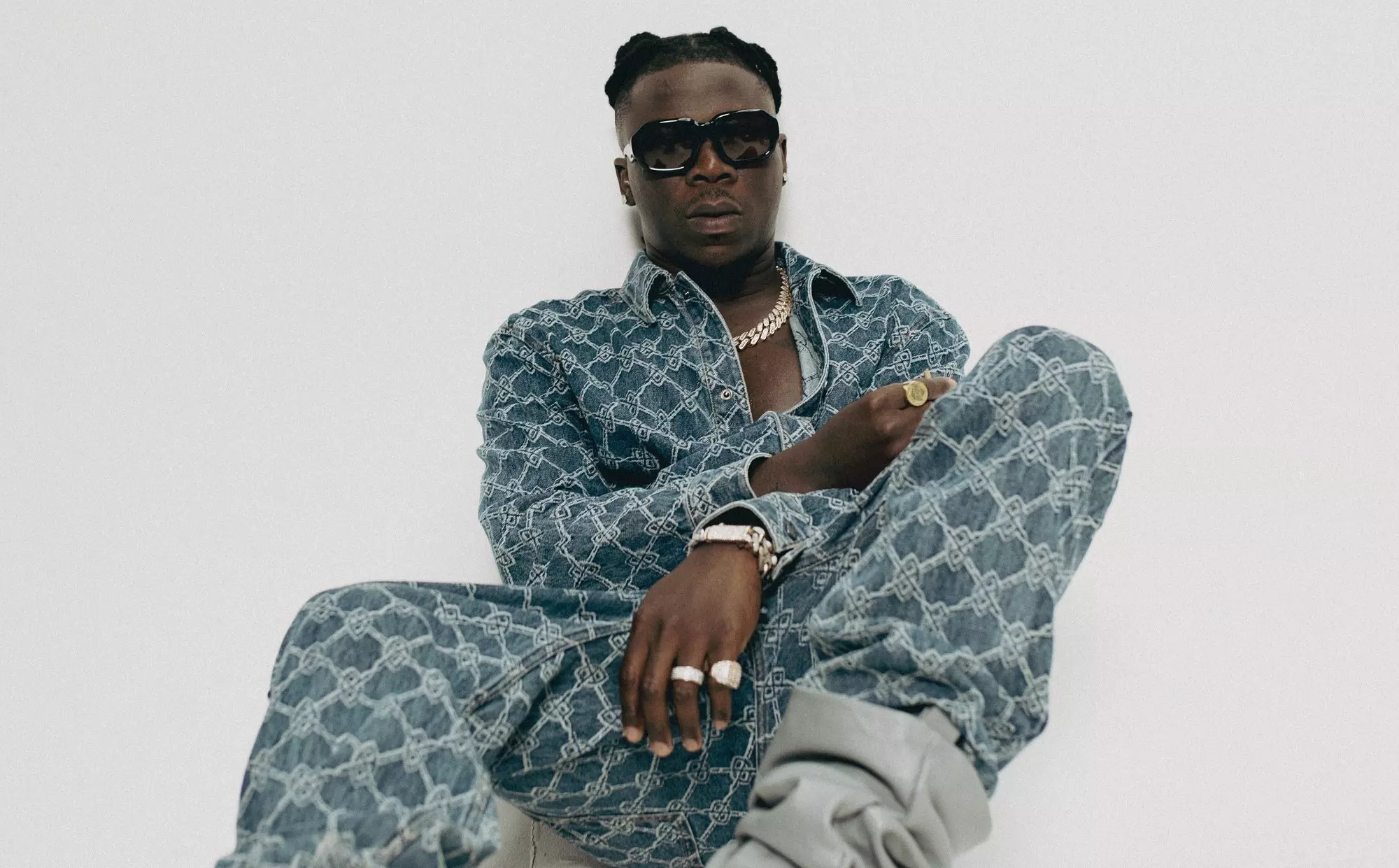
Stonebwoy On His "Inner Quest" To Showcase Authentic Ghanaian Sound

Mic Monsta Performs "Local Lokito" | Global Spin
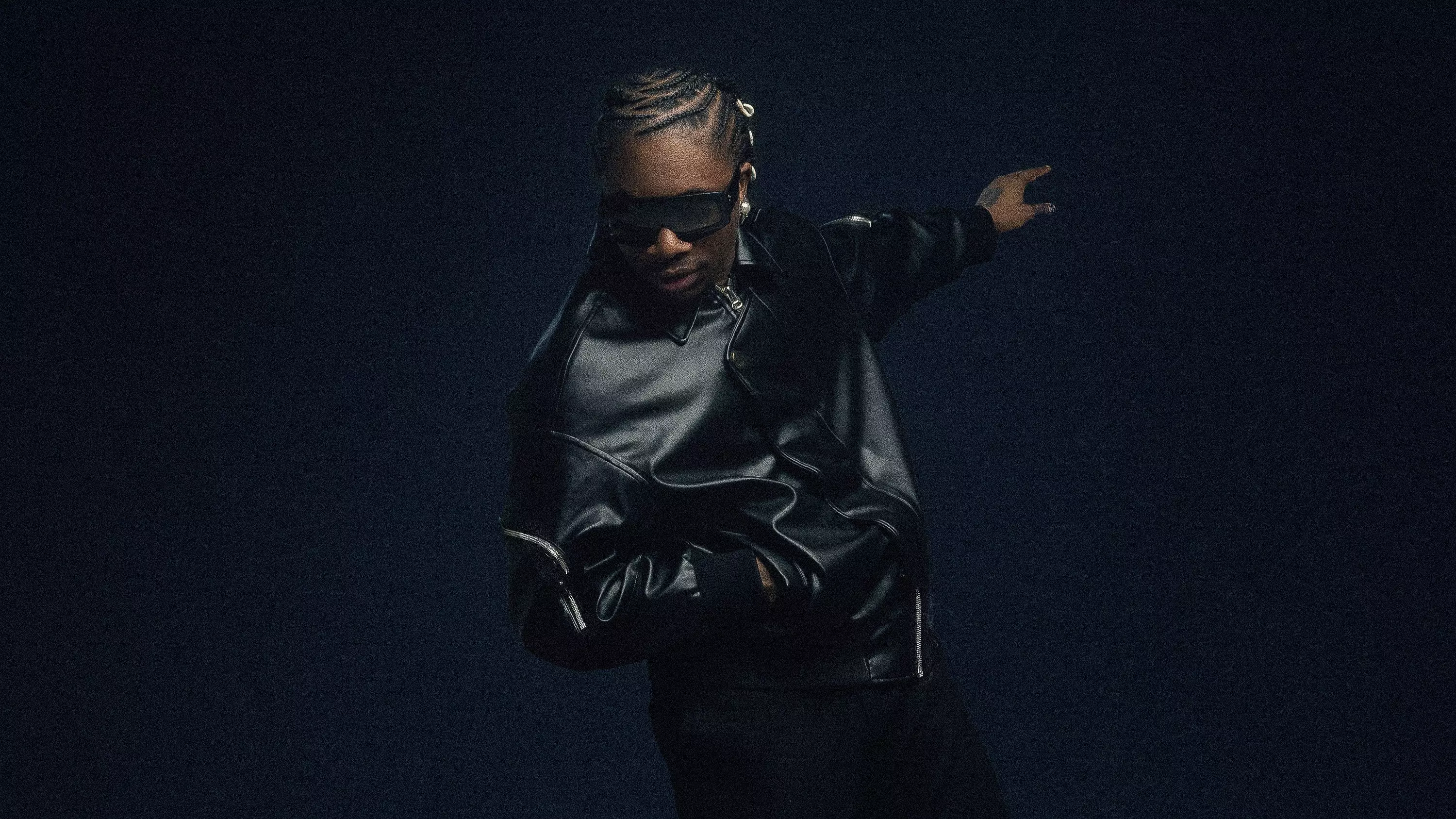
Rising Afrobeats Star Oxlade Is Ready To Go Global On 'Oxlade From Africa'
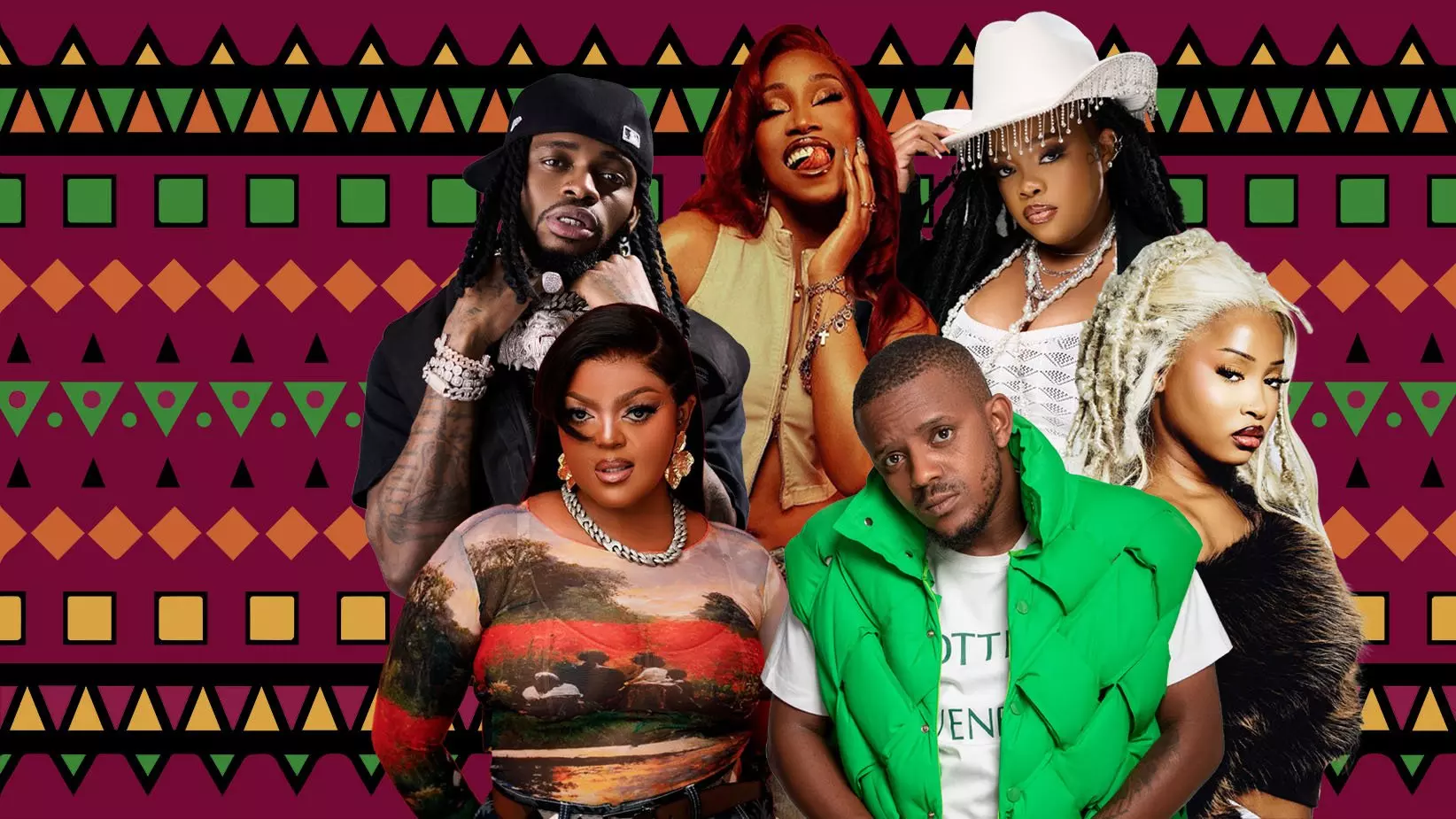
Amapiano's Decade-Long Journey To Global Dominance: The Sound Redefining Club Music Worldwide
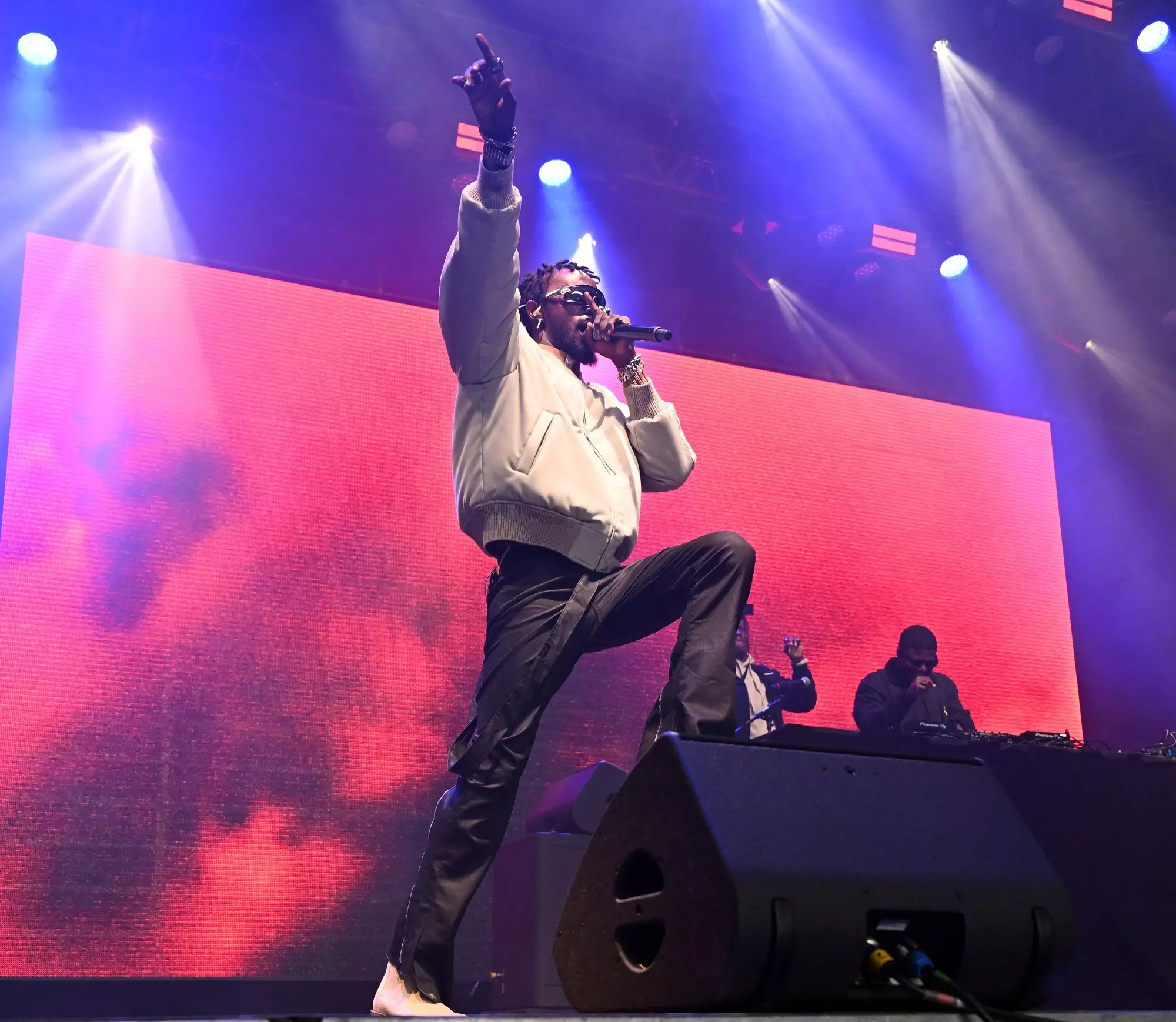
10 Artists Essential To Ghanaian Hiplife: Reggie Rockstone, Sarkodie, Mzbel & More
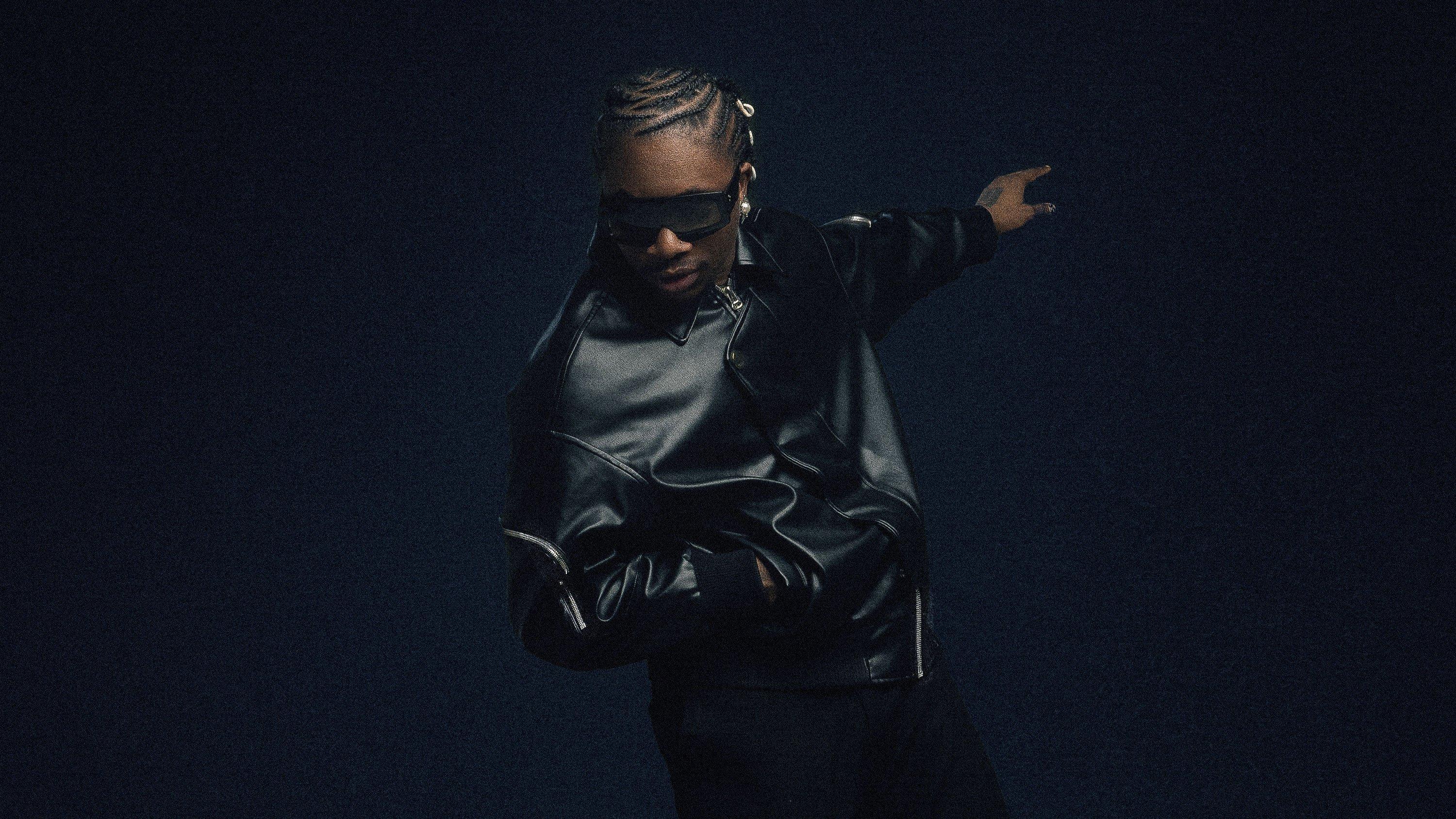
Photo: Courtesy of the artist
interview
Rising Afrobeats Star Oxlade Is Ready To Go Global On 'Oxlade From Africa'
The Nigerian singer discusses his new project, his global ambitions, and the unity of Afrobeats as an identity.
If there’s one thing Nigerian singer Oxlade believes in, it’s the power of Afrobeats as a world-conquering musical movement.
“Afrobeat is beyond the music. Afrobeats is who we are,” he says. “Afrobeats is the trends, the fashion, what we eat. Afrobeats is an identity.”
The Lagos native, born Ikuforiji Olaitan Abdulrahman, has good reason to believe in Afrobeats, considering he’s one of its fastest-rising stars. After a youth marked by tragedy and struggle, in particular the death of his mother at 3 years old, he left university to pursue a musical career in the late 2010s.
Oxlade quickly rose to prominence when his strong falsetto vocals earned him cosigns from Drake and opening performance slots for Davido and WizKid. His EP Oxygene, inspired by his own struggles with asthma, gained acclaim with the smash hit “Away” in 2020. An even bigger success followed with “Ku Lo Sa” in 2022; his performance of the song on A Colors Show, the influential YouTube series where artists give one-take live renditions of their music, currently has over 100 million views.
Now, Oxlade is readying his biggest act yet. He dropped his debut album Oxlade From Africa on September 20 ahead of a North American tour starting October 2 in Winnipeg. The album’s vision of what Afrobeats can be is quite inclusive, with the artist bringing aboard UK rapper Dave, French-speaking Congolese star Fally Ipupa, and Jamaican dancehall icon Popcaan as collaborators. Ugandan music legend turned political dissident Bobi Wine provides a spirited introduction on the album’s opening track.
GRAMMY.com caught up with Oxlade via Zoom ahead of the album’s release to talk about the creative process behind the record, his global ambitions, and how Afrobeats serves as a cultural force on the world stage.
How long have you been making music and when did you decide to start doing it professionally?
I started singing even before I started to talk. So it's more like a muscle memory thing for me. I was born into a musical family. I lost my mom when I was three, and I moved to my grandma's. My grandma happened to be a deaconess in a church, and she enrolled me in the choir. Ever since then, I've been singing. It has always been a part of me, even though I never knew I was gonna use it to impact lives. Even though I never knew I was gonna be Oxlade, I started singing even before I found myself.
Judging by the Barcelona FC jacket you’re wearing, you're clearly a football fan. Do you support any specific teams or players?
I'm a Barca fan. My favorite football player of all time is Neymar. He made me love football again. His game is artistic, not the normal athletic, direct style.
Before I knew the origin of your artist name, I originally thought that you had named yourself after (former Liverpool player) Alexander Oxlade Chamberlain.
Yeah, I get that a lot. Actually, I got it from my grandpa. He lost his best friend the same day I was born, and so he gave me the name in his honor.
**The album is called Oxlade from Africa. Why is it from Africa, not from Nigeria or from Lagos?**
As much of a Nigerian that I am, I'm equally an African. And Africa is the mother continent of every African country and race, including the likes of Jamaica and most of the Black people you see anywhere on Earth. So I felt like self awareness and identity is one of the most underrated strengths that any African has. I'm on the path of finding myself, but also I'm on the quest of telling people more about myself and where I come from through my music.
Something I encounter a lot when speaking with Afrobeats artists is the idea of Pan Africanism, this desire to sort of unite the whole continent through sound. And it seems like you want to unite sort of everyone of any Black experience.
I feel like we need more unity in Africa. God really blessed our race. And I feel the only missing piece is more love. If we let go of xenophobia, tribalism and personal greed, I feel like Africa could be the most blessed, flourishing continent to ever exist.
Is that why you wanted to work with someone like Bobi Wine, who has become a political leader in his country?
Yeah. I mean, it was just a way to remind the African youth that even though we are artists, we're vessels, and we are also destined to use our platforms and our voices to wake people up. The future is now, the future is tomorrow, the future has to start from now, and having Bobi Wine on there was just like a trigger to remind people of what the struggle of being an African youth feels like, and against all odds, how much we have to triumph. Because when our parents, or when the people that came before us are gone, we're going to be the ones that have to handle the fate of Africa.
Was there a particular moment earlier on in your career where you realized you wanted to become a musician full time? What was that moment like?
I just knew I was never going to work a nine to five (laughs). Like, in as much as I could work for someone, I want to work on my own terms. I want to work while creating my own future, my own art. I didn't know I was going to be this big or go this deep into music, but I knew I was going to be a star. I started off as a dancer, and then I started acting, and then music just came along. Music had always been there, but I really didn't know what exact talent I was going to use to actually push my stardom. But I feel like music eventually won, because I think that's the most natural thing that comes to me.
Is there a co-sign from another artist, or anyone really, that excited you more than anything other? Who's the most important supporter?
Every single human being that streams my music is my biggest co-sign. I would say Drake, but I mean, a woman somewhere in Congo taking out her hard earned money to stream my music is my biggest supporter, or the woman somewhere in the South of France using my songs to serenade her husband for their wedding anniversary. I feel like every single person that ever invested in my music should be regarded as my biggest co-sign ever.
What’s the biggest career milestone of yours so far? What is something that you are really proud to have accomplished
My biggest career milestone is the fact that I never stopped, that I'm still here, that I'm still trying to achieve my goals, regardless of all the obstacles, regardless of where I come from. Trust me, being a Nigerian alone is an obstacle, because we’re making it against all odds. We're doing this in hardship, in poverty, and we're still excelling. So being able to achieve my dream alone is my biggest milestone.
Were there any particular obstacles in the making of this album that you had to surpass?
Obstacles have to happen for you to value every success that you achieve, so from the paperwork down to me having to go re-record the entire album in London, down to selection problems, down to me having to let go of some personal, sentimental songs that didn’t fit the theme of the album, down to having sleepless nights, always having to push the album date, thousands of Zoom meetings – it's a long list. That's why I'm so grateful that this album exists.
What would you say the theme of the album is overall?
Royalty, African excellence, and Black is the new cool. Being Black is a flex. Afrobeat is beyond the music. Afrobeats is who we are. Afrobeats is a Twitter banter. Afrobeats is the trends, the fashion, what we eat. Afrobeats is an identity. So I understand when people try to carve a niche for themselves, but what I don't like is when it’s at the expense of Afrobeats, discrediting what we're fighting for, which is an identity. You wouldn't see Kendrick Lamar, no matter how many triple or quadruple entendres he might put on a record, try to downplay hip hop, because that's the identity they're trying to represent. So I feel like this album is just an embodiment of all of that, authenticity, originality.
**In terms of what you put into the lyrical content or the sound of the album, how do you think that identity manifests on Oxlade from Africa?**
I sang about my struggle. I sang about love, I sang about gratitude. I sang about prophesying greatness into one's life. Everything I am in real life was transferred into melodies, and that is why I feel like that is authentic enough to be labeled Oxlade from Africa and an African album, because I'm African, and I'm literally singing my experiences into music.
And those personal songs that you had to leave off, why exactly weren’t they right for this project? And are you going to try and put them out at some point?
Definitely, they're gonna fit into the project they were made for. Some of them were probably extremely pop records, and they defied the theme and sound that I was trying to create for this album. Some of them could be techno music. Some of them could be different types of genres that didn't fit the theme of the album, not because the songs were not good enough. So definitely, those songs are gonna find an album that benefits them.
Who would you love to collaborate with the most?
Dead or alive? Michael Jackson is a no brainer, because I feel like he's the greatest to ever do it. He made Black boys mainstream. I don't know if you understand what that means, like he’s the first Black pop artist to be televised on MTV. You know, all those types of milestones made boys like us, at home in Africa, believe that anything is possible. Another person I would like to work with is probably Drake. Him, Kendrick, Lauryn Hill, and the list goes on and on. There's Chronixx from Jamaica. I just love spiritual, ethereal musicians
What's one thing that people might not know about you?
I'm asthmatic. People don't know that. That's why I dropped my first ever project, an EP called Oxygene. People didn't realize it was me raising awareness for asthma patients around the world, to tell them they’re not alone and that music would be the air you need to heal you from asthma. I'm also a cat guy, I have two cats.
Does your asthma ever give you difficulties when performing?
Oddly enough it never has. I feel like the pressure and the intensity that comes with climbing the stage turns all sickness into hype. Like you're about to get onstage, nothing is messing you.
More News About African Music

Stonebwoy On His "Inner Quest" To Showcase Authentic Ghanaian Sound

Mic Monsta Performs "Local Lokito" | Global Spin

Rising Afrobeats Star Oxlade Is Ready To Go Global On 'Oxlade From Africa'

Amapiano's Decade-Long Journey To Global Dominance: The Sound Redefining Club Music Worldwide

10 Artists Essential To Ghanaian Hiplife: Reggie Rockstone, Sarkodie, Mzbel & More
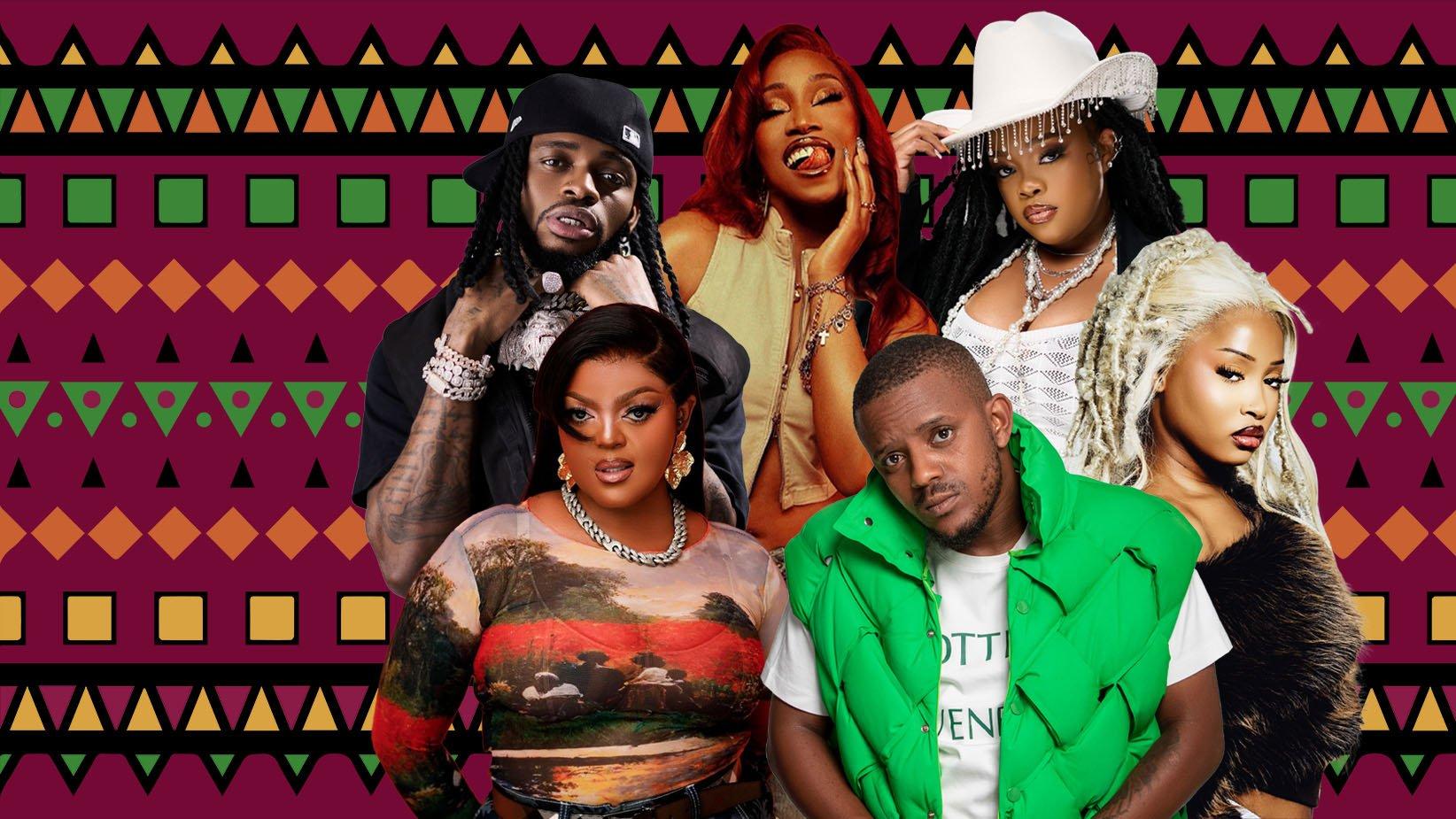
Photos: Blaq; Jibril Jallow; Malwandla Rikhotso; Mishaal Gangaram; Malwandla Rikhotso; Minenhle Nene
feature
Amapiano's Decade-Long Journey To Global Dominance: The Sound Redefining Club Music Worldwide
Amapiano may have started in the townships of South Africa, but it didn’t stay there. Amapiano artists Kabza De Small, Uncle Waffles, DBN Gogo, and others detail how the genre went from the underground to the GRAMMY stage and beyond.
At nightclubs in Tokyo, New York and beyond, pulsing through the speakers at major European music festivals, and even in Hollywood blockbusters, one sound has been steadily taking over: amapiano.
The South African genre, with a blend of deep house, jazz, lounge and local musical styles, has captivated the world, generating billions of views on social media and sparking a cultural phenomenon that shows no signs of slowing down. On TikTok alone, the #Amapiano hashtag has amassed over 10 billion views, a testament to its global reach and popularity.
Characterized by velvety, hypnotic grooves, piano melodies, deep basslines, and smooth percussive rhythms, amapiano was born in the townships of Gauteng Province — particularly in cities like Pretoria and Johannesburg — in the mid-2010s. Slower than the average club track, amapiano songs often live between 110 and 120 bpm. The genre's rise to global dominance is a testament to the power of grassroots creativity and digital connectivity.
Fast-forward to February 2024, and South African singer Tyla took home the inaugural golden gramophone for Best African Music Performance at the 2024 GRAMMYs. Beyond Music's Biggest Night, Tyla's amapiano-infused Afropop hit "Water" topped the Billboard U.S. Afrobeats Songs and Hip-Hop/R&B charts, and became the first African song to enter the Billboard Hot 100 since 1968. The "Water" dance challenge on TikTok — created by Tyla’s choreographer, Litchi — also widely pushed the song.
Tyla isn't alone in pushing the genre's popularity. Interest in amapiano has been propelled by social media and streaming platforms. According to Spotify data, the genre garnered its first 100 million streams in 2020; by mid-2024 the platform reported 855 million streams of amapiano songs. Between 2014 and 2024, there has been a 153 percent growth in international exposure to the genre.
While Tyla’s win at the GRAMMYs and in wider culture affirms the genre’s solid footing in the global music scene, amapiano’s popularity is the result of a decade-long journey.
The Birth Of A Movement
While the birth of amapiano is generally pegged to 2014, there’s no specific event or single person that can be credited with its uprising. Amapiano's origins were humble but innovative, distinguished by its inclusivity and collaboration — factors that are likely the result of the fluidity with which the genre emerged.
Young, aspiring producers in South African townships used affordable personal computers and free music production software to blend globally-influenced sounds such as deep house and jazz with kwaito — a distinctly South African genre. True to the collaborative nature of the genre's origins, an amapiano song can have six to 10 collaborators (sometimes more); the result is a blend of carefully curated voices, notes, and themes that captivates listeners far beyond its birthplace.
Kabza De Small began his career in 2009 and broke through on the continent with his 2016 album Avenue Sounds. Today, he's hailed as the "King of Amapiano" by media, fans and industry peers. "Amapiano is considered a raw, rough sound. To see people globally dancing and participating in TikTok challenges is thrilling," he tells GRAMMY.com, reflecting on amapiano's unique sound and present-day virality.
This rawness is largely reflected in the genre’s production, which often strips down tracks to their bare essentials. Repetitive beats and bass often contribute to amapiano's "rough" aspect, making it feel more direct and visceral. Soulful melodies float over that heavy bass and percussion, and catchy vocal hooks balance the raw beats underneath.
Amapiano’s collaborative nature has been crucial to its development. Kabza De Small shouts out pioneering producer, singer and songwriter, Mdu aka TRP. "Not a lot of people know that he basically founded the log drum sound that is so essential and distinct" to amapiano, De Small says. In amapiano, the "log drum" isn't an actual instrument but a distinct, synthesized bass sound that captures the deep, resonant tones of a traditional log drum. This signature sound has become a cornerstone of amapiano's unique and captivating vibe.
From Local Phenomenon To National Breakthrough
Cultural authenticity has been a key factor in the sound's appeal. It's not just a genre of music, but a representation of South African identity and expression. The name itself came from the Zulu language, which is the word for "pianos."
By 2016, amapiano was still finding its ground, with local DJs and producers refining its signature elements.
Learn more: 11 Women Pushing Amapiano To Global Heights: Uncle Waffles, Nkosazana Daughter, & More
A significant milestone was achieved in 2017 when De Mogul SA's "Oe Batla Kae" became one of the first amapiano tracks to achieve commercial success. The tune got the artist booked for local shows, effectively paving the way for other amapiano songs. In 2018, "Umshove" by Kabza De Small feat. Leehleza showcased a more refined amapiano sound, highlighting elements that "Oe Batla Kae" lacked — particularly the log drum.
2019 was a defining year for amapiano, as songs like "Labantwana Ama Uber" by Semi Tee (feat. Kammu Dee and Miano), "Vula Vala" by DJ Maphorisa and Kabza De Small (feat. Nokwazi and Vigro Deep), and "Kokota Piano" by Kaygee Daking and Bizizi further left the underground. Amapiano could be heard on television and radio, in clubs, and across social media, effectively making the above songs anthems throughout South Africa.
As the sound began to spread nationally, it carried with it the stories, language, and rhythms of its birthplace, creating a strong connection with listeners across the country.
The Global Takeover
As the world grappled with COVID-related lockdowns in 2020 and 2021, danceable amapiano songs such as DBN Gogo and Musa Keys' "Possible," Focalistic's "Ke Star" feat. Vigro Deep, and "Emcimbini" by Kabza De Small and others provided a much-needed escape. With more time spent online during the pandemic, the genre was simultaneously making its way into social media globally, with a variety of TikTok dance challenges bringing additional listeners to the genre.
International collaborations further catapulted amapiano onto the world stage. In 2022, Nigerian crooner CKay collaborated with Davido and Focalistic on "Watawi", a notably huge Afropiano song. On YouTube, the songs performed quite well, with "Woza" by South African artists Mr JazziQ, Kabza De Small and Lady Du featuring Boohle hitting 21 million views. "Mang’Dakiwe" by DJ Obza featuring Leon Lee hit 17 million views. The remix, done in collaboration with Tanzanian bongo artist Harmonize garnered 29 million views.
By 2023, the amapiano sound was now mature and definitive, with all of its key elements together. Over the next few years, amapiano sounds would be incorporated with genres from other countries to great effect.
Zimbabwean amapiano vocalist Sha Sha's "Tender Love" feat. DJ Maphorisa and Kabza De Small garnered more than 15 million views on YouTube. The popular release showcased her impeccable vocal range and denoted that amapiano was now being done by artists beyond South Africa. For her efforts, Sha Sha took home the Viewer’s Choice Best New International Act award at the 2020 BET Awards. Her win on an international platform signaled amapiano's arrival on the global music scene and opened doors for more artists to gain international exposure.
Simultaneously, awards for and documentation of amapiano within South Africa pushed the movement even further. In 2021, the South Africa Amapiano Music Awards were launched and exclusively dedicated to the genre. The inaugural Best Amapiano Album Of The Year Award was given to De Mthuda for Ace of Spades.
Uncle Waffles, whose electrifying DJ sets have made her a symbol of the genre's youthful exuberance, marvels at this global embrace. "It's amazing to see the world embrace a new sound," she tells GRAMMY.com. "Seeing people dancing and singing to the songs never fails to stun me."
Amapiano artists including Uncle Waffles, DBN Gogo, and Major League Djz have performed on a variety of global stages, from AfroNation's Portugal and Miami events to Coachella and London's O2 Arena. Tyla has performed at the BET Awards, the 2024 Olympics and the Cannes Lions Festival 2024.
Encouraging Cross-Cultural Collaborations
Amapiano has become a cultural ambassador, allowing artists in the diaspora to connect with their roots while introducing the sound to new audiences.
Amapiano singer Nqobilé Danseur, who grew up in South Africa before moving to the UK at age 12, tells GRAMMY.com that "amapiano is deeply personal to me as it embodies my South African heritage and journey. Growing up in South Africa, kwaito was the soundtrack to our lives."
The genre's authentic DNA has allowed artists to explore new territories, both geographically and creatively. Nqobilé recounted her 2022 single "Shake" featuring Xavier being played during a carnival party in New York, and how the crowd's engagement reflected amapiano's ability to transcend cultural and physical boundaries.
Singer/songwriter Boohle, who transitioned from gospel and Afropop to amapiano, has toured Dubai, Amsterdam, and many African countries. "Seeing cultures and backgrounds unite over the music we make is something else. I would call it God's plan," she tells GRAMMY.com.
This international appeal has seen the rise of crossover subgenres such as Afropiano (Nigeria), bongopiano (Tanzania), Gqom 2.0 (South Africa), and bique (Mozambique). Afropiano tracks have garnered hundreds of millions of views on YouTube as of 2024. Among the largest hits are Kizz Daniel and Tekno's "Buga," Spyro's "Who is Your Guy" remix feat. Tiwa Savage, and "Unavailable" by Davido feat. Musa Keys.
Diamond Platnumz, a Tanzanian bongo artist, is a prolific contributor to the amapiano genre. "Tanzania has a very close relationship with South Africa from years back established with our forefathers," he says, adding that he also has family in South Africa. "I spend a lot of time there between business and family obligations. It was a natural thing for me as a creative to infuse what I was hearing on the ground in SA with what we are accustomed to in Tanzania."
Platnumz's amapiano catalog is impressive, with songs such as "Iyo", "Shu!", and "Nitongoze." He has collaborated with the genre’s heavyweights including rapper Focalistic, choir Mapara A Jazz, and the late Costa Tich. His 2024 amapiano single "Komasava" remix is an international collaboration that featured Khalil Harrison, Chley, and Jason Derulo.
The track, rich in amapiano beats, layered with modern pop elements, and Zulu, Xhosa, French and Swahili lyrics, exemplifies how the genre has become a bridge between artists from different parts of the world.
Cultural Impact Beyond Music
As amapiano spread globally, it began to influence fashion, dance, and broader culture.
The genre's success has also opened doors for African artists to venture into arenas outside of performing music. Kabza De Small created PianoHub, a record label which houses South African amapiano artists including Young Stunna, Mdu aka TRP, Nkulee & Skroef28, Deeper Phil, Masterpiece TVK, and Stakev. De Small added that he plans to open a venue called Piano Hub Soweto — another example of how amapiano has created economic opportunities and fostered community development.
DBN Gogo echoes this sentiment, adding that amapiano has broadened the horizons for many in the industry. "Outside of music, I think my team and I have been grateful for the opportunity to travel and see the world," she says. "Whenever we do have the opportunity we take time in different countries to immerse ourselves in the dance culture there. Amapiano has done so much in giving us and many others the chance to represent South Africa and the genre worldwide."
The success of amapiano has boosted Nqobilé Danseur's confidence, affirming her authenticity and driving her to release music consistently. Diamond Platnumz adds that he has become more aware through his involvement with amapiano, making his life's purpose even more meaningful. This July, DBN Gogo became the first amapiano DJ to perform at Belgium's Tomorrowland festival.
Even Beyoncé has taken notice: Uncle Waffles' debut single "Tanzania" was featured during a dance break on the European leg of the Renaissance World Tour.
Looking To The Future
As amapiano enters its second decade, its influence shows no signs of waning. The genre continues to evolve, with artists experimenting with new sounds and collaborations that push its boundaries.
Going forward, listeners can expect to see amapiano artists continuing to team up with global stars, experimenting with sounds that cross genre boundaries, from Afrobeats to electronic dance.
In October 2023, DBN Gogo collaborated with veteran Italian EDM DJ and producer Benny Benassi on a track titled "SAdesFakSHen." In June 2024, Chris Brown released "Hmmm," an Afropiano song featuring Davido. The song, which is part of his 11:11 album now has over 14 million views on YouTube by the time of this publication. Previously, Chris Brown appeared on the "Monalisa" remix, an Afropiano hit by Nigerian singer Lojay and producer Sarz.
"Tshwala Bam" by TitoM and Yuppe is another 2024 amapiano hit that saw Burna Boy jump on a remix. The song spawned a massive TikTok challenge, which got Tyla dancing with famed streamer Kai Cenat, while Khabi Lame joined in on the challenge, and Jason Derulo collaborated with popular twins Laurent and Larry Bourgeois on the dance.
Despite its success, amapiano faces challenges as it continues to grow. Maintaining its cultural authenticity while appealing to a global audience is a delicate balance. There's also the question of how to ensure that the pioneers and grassroots creators of the genre continue to benefit from its global success.
Boohle envisions a bright future for the genre. "Seeing the world jamming to amapiano is a dream come true for me as a young musician in South Africa," she says. "Remember, we come from a background of apartheid and oppression. Seeing cultures and backgrounds unite over the music we make is something else."
The story of amapiano is still being written, with each new release, collaboration, and dance challenge adding a new chapter to this remarkable musical journey. As it continues to evolve and inspire, one thing is certain: The amapiano revolution is far from over – it's just getting started.
Latest News & Exclusive Videos
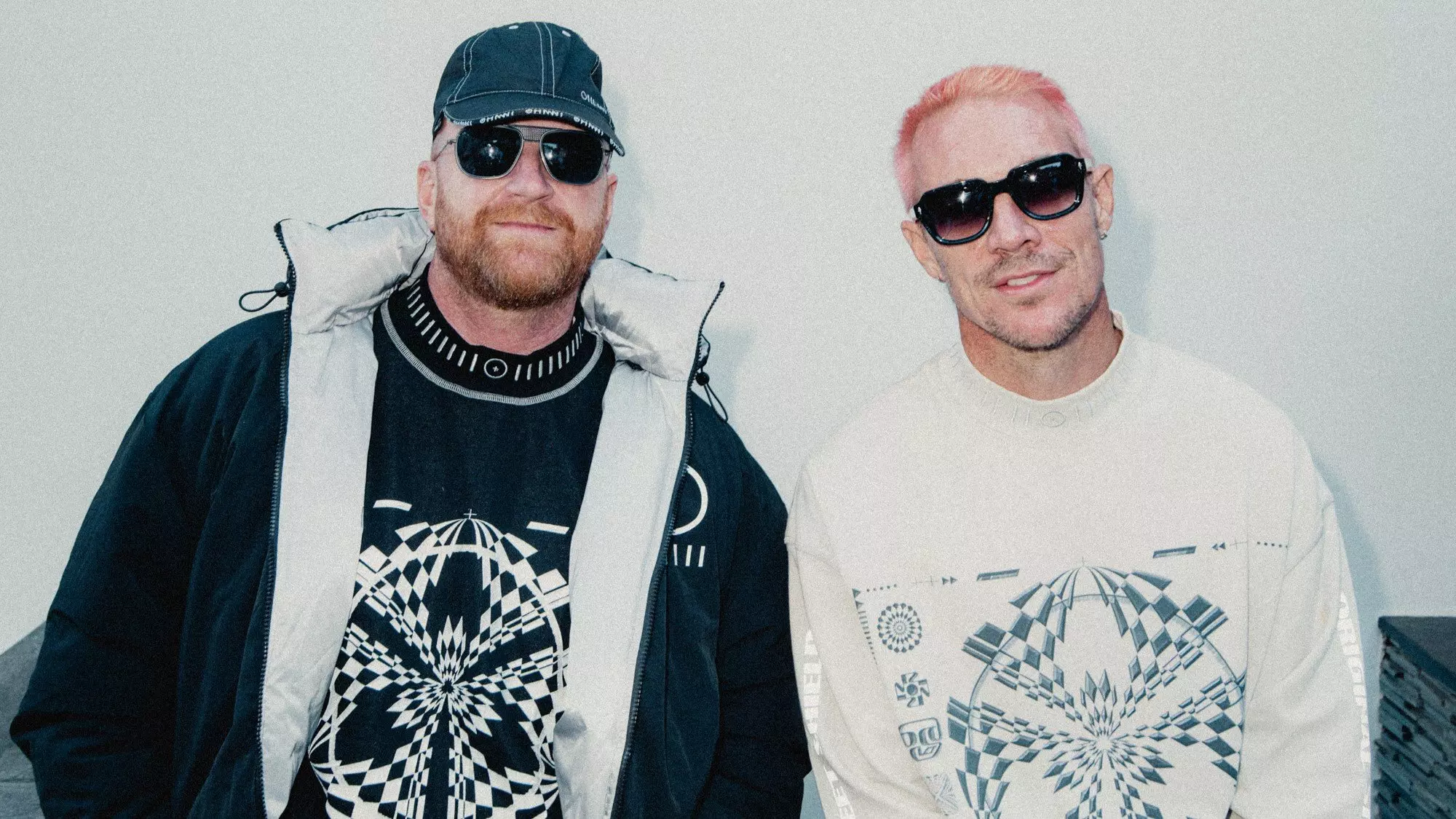
How Major Lazer's 'Guns Don't Kill People…Lazers Do' Brought Dancehall To The Global Dance Floor

YOASOBI Performs "Idol" | Global Spin
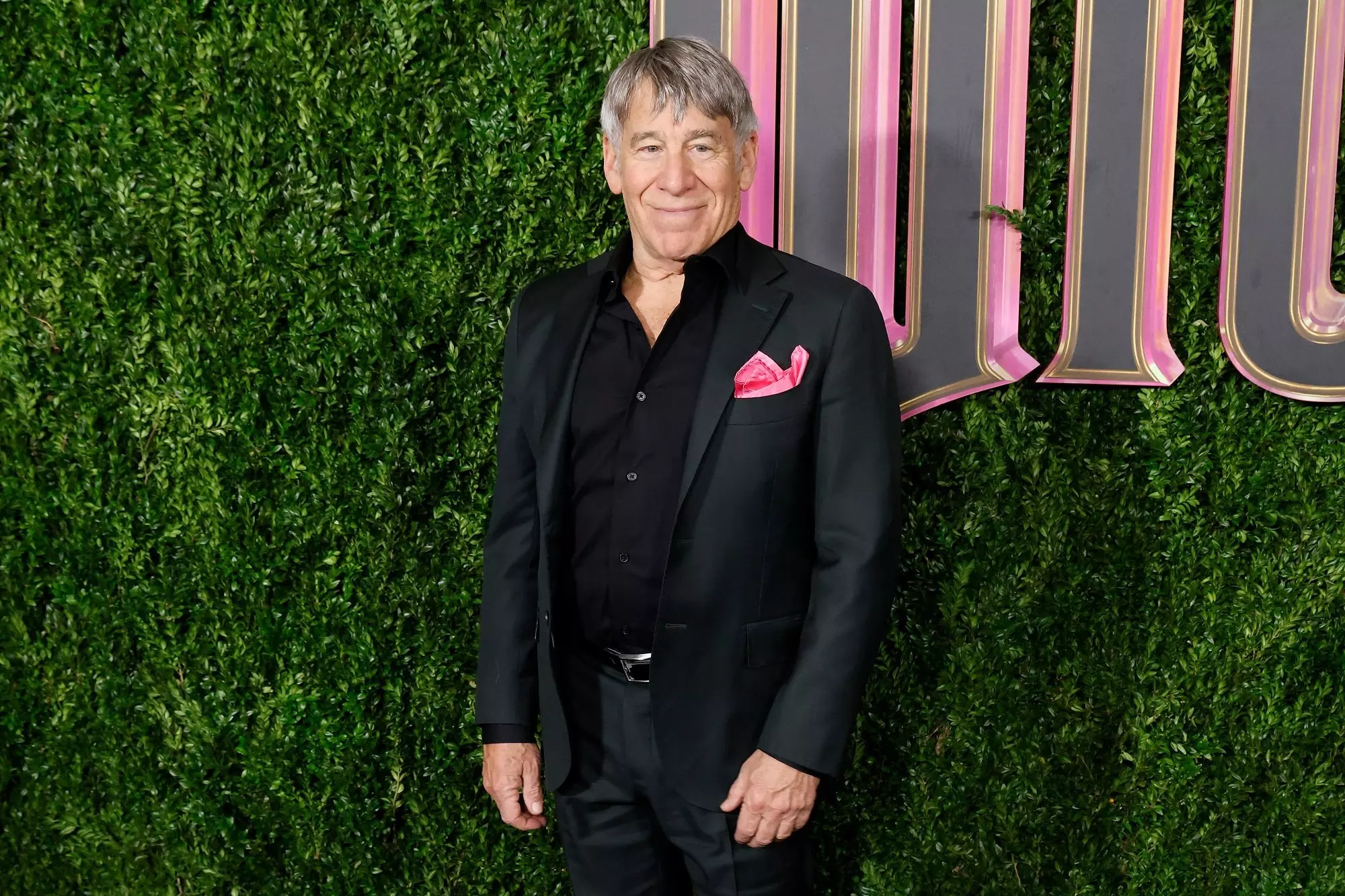
'Wicked' Composer Stephen Schwartz Details His Journey Down The Yellow Brick Road
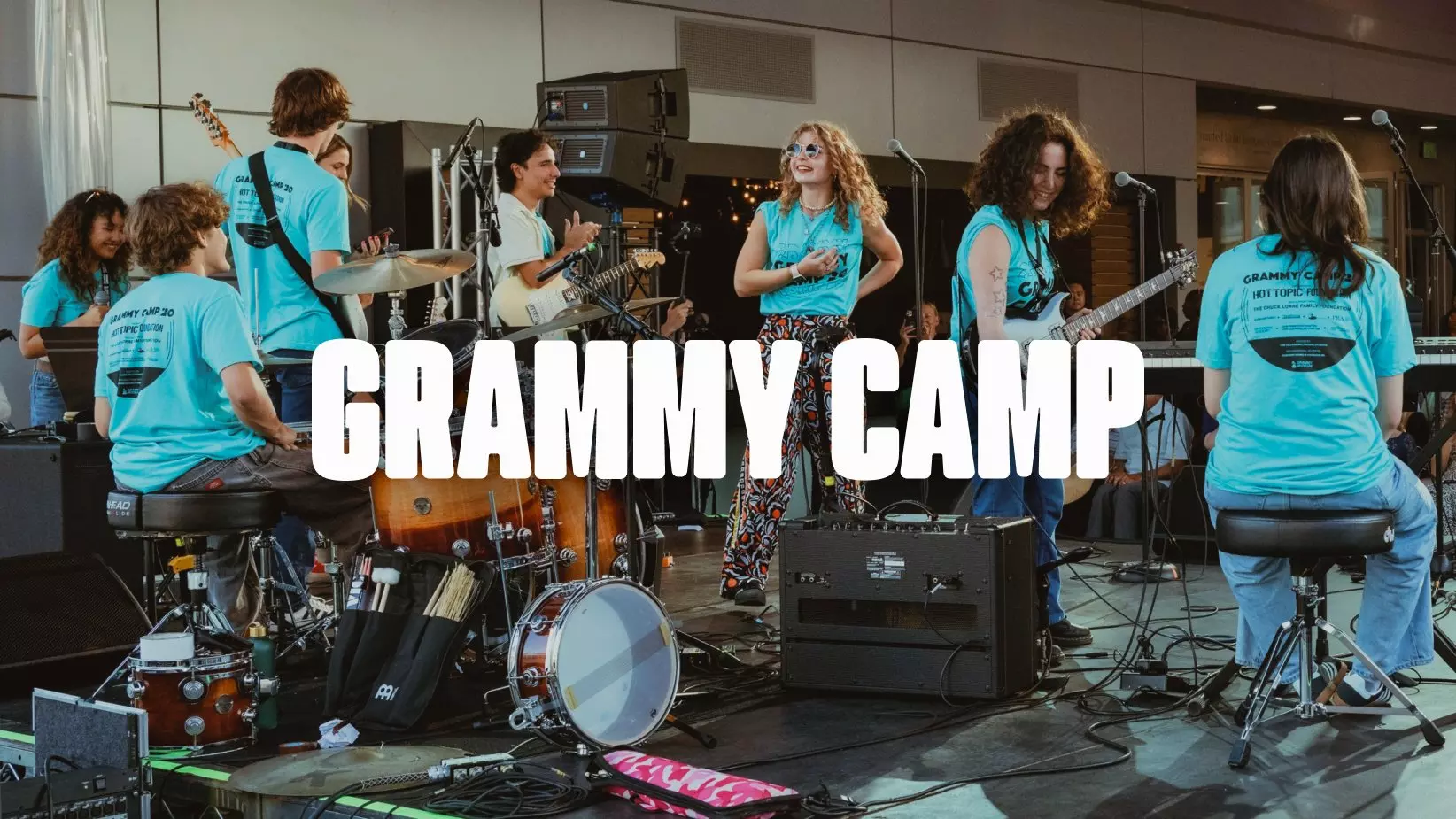
GRAMMY Museum Expands GRAMMY Camp To New York & Miami For Summer 2025
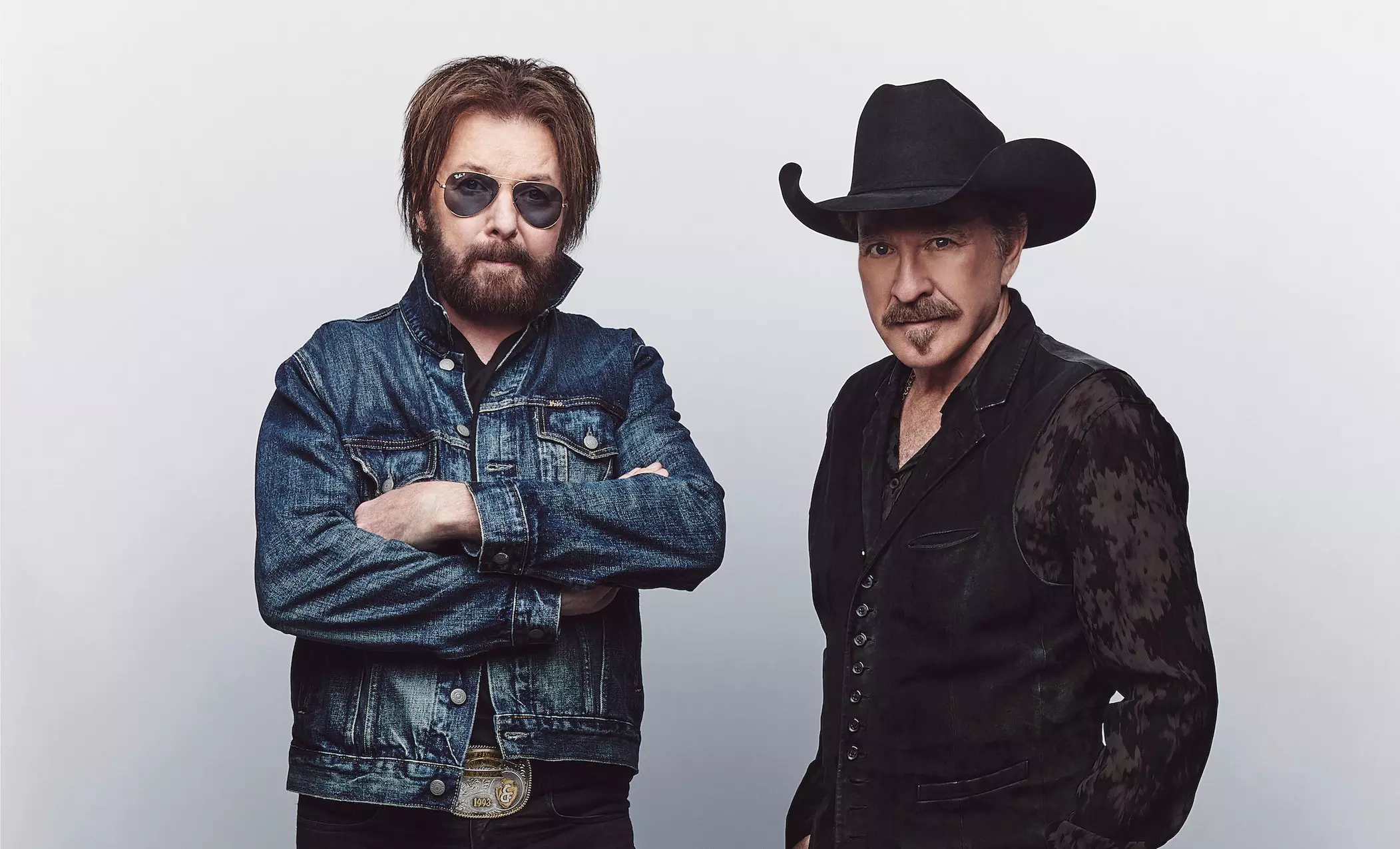
Living Legends: Brooks & Dunn On How 'Reboot II' Is A Continuation Of "Winging It From Day One"
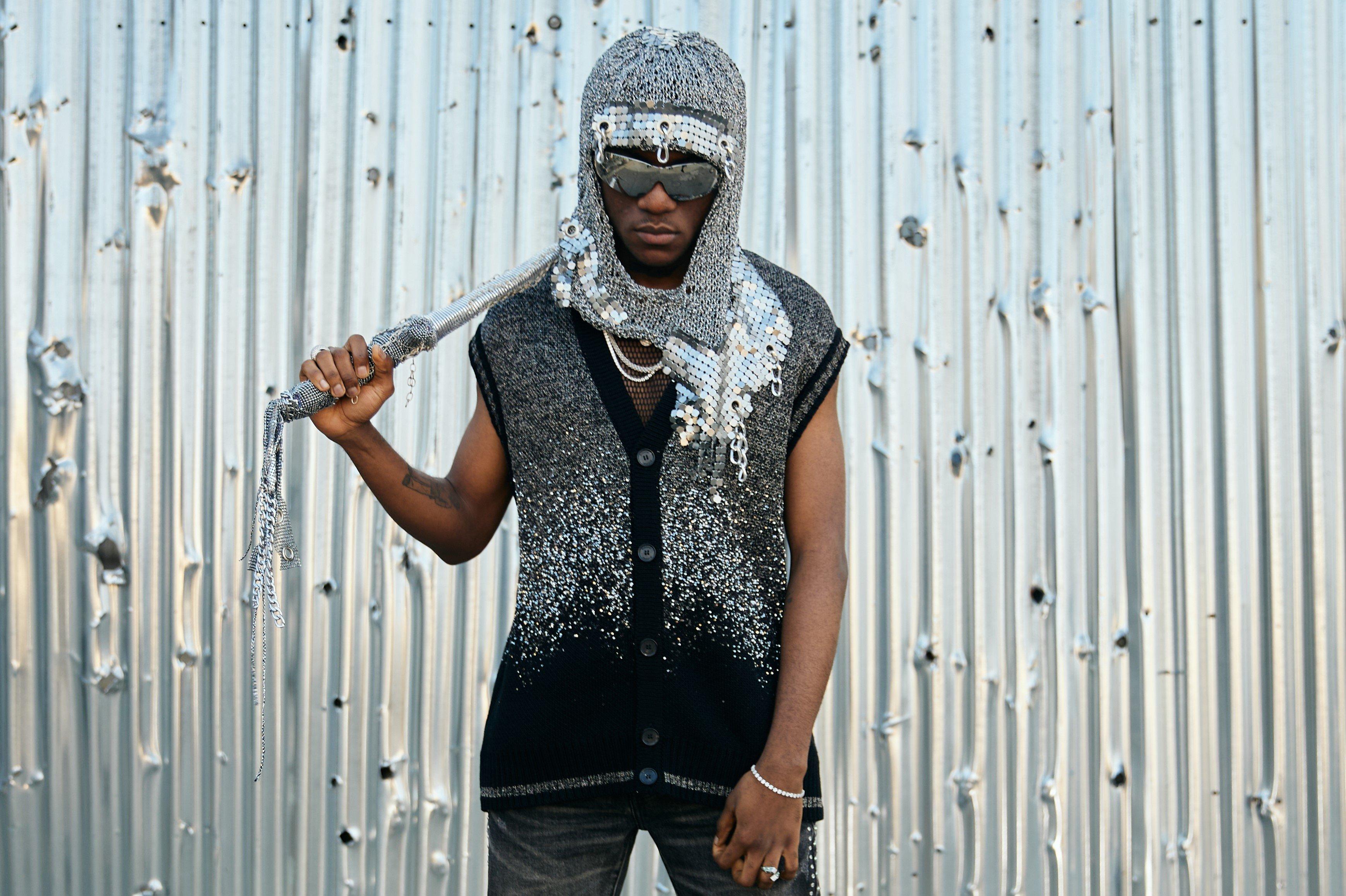
Photo: Shoakland
interview
Meet Victony: The Afrobeats Sensation Sharing Importance Of Being 'Stubborn'
Victony's debut album, 'Stubborn,' is just months old, but the young Afrobeats star is rising fast. Ahead of his first headlining U.S. tour, Victony detailed the creative process behind his new album and his predictions for the next year in Afrobeats.
To say that the past year has been an eventful one in the dynamic world of Afrobeats would be, at best, a gross understatement. The genre's list of global accolades has continued to swell in size, including multiple nominations at the 2024 GRAMMY Awards, expansive cross-border collaborations, and inaugural appearances on some of the world’s most coveted stages.
Simultaneously, Afrobeats has been undergoing something of an identity crisis, in which listeners have criticized sonic monotony and Western pandering of some artists. In the immediate wake of this criticism, as though on cue, came a slew of forward-thinking projects from the genre’s biggest stars, igniting the mainstream scene’s creative progression. Among these stars is 23-year-old Afrobeats sensation Anthony Ebuka Victor, known widely as Victony.
His debut album, Stubborn, is barely two months old yet has already received high acclaim from top Afrobeats pundits and laymen alike. Therein, Victony tells his life story for the first time, complete with vivid songwriting that delves into themes of childhood, romance, and dogged resilience. With features from Nigeria’s Asake and Shallipopi, as well as American acts Teezo Touchdown and Saint JHN, Stubborn's sonic meter explores Afrobeats with unending - and unmatched - innovation.
Victony, however, is no novice when it comes to putting out pristine bodies of work. His 2020 EP Saturn sounded nothing like a 19-year-old’s debut; singles “Jo Riddim” and “Space and Time” revealed serious sonic maturity. His subsequent EP Outlaw, which followed his breakout as the feature on Mayorkun’s “Holy Father,” included addictive hits “Apollo,” “Jolene,” and “Soweto.” The latter, of course, took the world by storm and led to a remix featuring Don Toliver and Rema, which peaked at No. 5 on the Billboard Afrobeats chart.
Between this, his debut on the ColorsxStudios platform, his assist on Burna Boy’s “Different Size,” and his record deal with the L.A.-based Encore Records, it is difficult to tell just when this young boy from Ojo, Lagos became a continental and global star. What’s more, he’s soon to push his story outside of Nigerian borders, kicking off his Stubborn North American tour on Aug. 6.
Ahead of this tour, Victony sat down with GRAMMY.com to discuss his creative process, the importance of telling his story, and all things Stubborn.
'Stubborn' features excellent songwriting about your life experiences, though it's not the first time you've done so. What makes 'Stubborn' different from the other work in your discography?
Stubborn has my story; it’s where I get to properly introduce myself. The [Outlaw] EP is like Yeah, this guy can sing, he knows all this Afrobeats stuff. Let’s put a good body of work together for people to enjoy. The Stubborn album is saying, This is Victony. This is where he’s from. This is what he’s about.
You’ve mentioned before that veteran Nigerian rapper Olamide encouraged you to make 'Stubborn' a full-length album as opposed to an EP. Had you been ready for an era shift at the time that you spoke to him?
I was prepared for an era shift, but my mind was just stuck on an EP because that was the plan since last year. Sometimes, you can’t even see what everything looks like when you’re really in it. You have to extract yourself from the situation and really look at it. But speaking to Olamide, once he mentioned the album, it felt possible. I was like, Why am I not even thinking about an album?
'Stubborn' is an incredible testament to resilience, but you also explore other themes like love and betrayal. What is the overarching message that you wanted the project to convey?
Resilience is the boldest statement that the project has. But within all that, there are other things that I’ve been through, like the stuff that you mentioned, that didn’t change me as a person.
I still have the ability to love, and I still have the ability to receive love. So obviously, that reflected in a few songs on the project because I still go through those emotions. I’m still human regardless of everything I've been through.
Your feature list is quite expansive — we have Shorae Moore, Shallipoppi, Saint JHN, Teezo Touchdown, and Asake. Did you have an idea of who you wanted on the project beforehand, or was your feature selection process more organic?
I’m always curious to see what this and this will sound like, or what doing this and this will look like. So I just make songs and think about who will be perfect on those songs. I didn’t think of it as, I want an album, who are the guest features?
One thing that the features all have is authenticity. These people have a voice, they have a style, they have something that they stand for. And that is something that Stubborn is also preaching — authenticity. So collaborating with these people helped to bring very interesting ideas to life. Because one wouldn’t ordinarily imagine a Victony and Asake feature, or a Victony and Teezo feature. But when somebody who is authentic collaborates with somebody who is authentic, something has to happen. We were just trying to create something, and I love creating.
Learn more: Meet The Latest Wave Of Rising Afrobeats Stars: AMAARAE, BNXN, Oladapo & More
You have a U.S. tour coming up which is extremely exciting. You’ve toured with Rema before, but this will be your first-ever solo tour. How are you feeling?
I’m actually very excited. We’ve been planning what we want the tour to feel like, because it’s important to think about the feeling that you want to leave people with. I think that this tour is the biggest opportunity to showcase what the album is really about. Having to go on stage, perform for an hour plus. I don’t think I've ever done that nine times in a row in nine cities. So we’re planning everything to make that all come to life.
What do you want your U.S. audience to take away from your tour?
I want my U.S. audience to feel the essence of my journey and connect with my music. This tour is a journey through my experiences and my evolution as an artist. You'll get the party anthems as well as the soul-stirring ballads. I want them to leave each show thinking, This is what that Victony guy is about: raw talent, authenticity, and a sound that resonates deeply.
Give us your Afrobeats predictions for the year — what should we expect from the scene?
I just feel like it’s about to be a madhouse. Tems just dropped, Ayra Starr just dropped, Ruger & BNXN just dropped. And Wizkid is yet to drop, Davido is yet to drop, Fireboy DML is yet to drop. I don’t think we’ve had a year like this. Ever. It’s like everybody is dropping a project this year.
Read more: Tems On How 'Born In The Wild' Represents Her Story Of "Survival" & Embracing Every Part Of Herself
My prediction is that this is the start of something for Afrobeats. Before now, what people would tell you is that Afrobeats artists all share one fanbase. But everything is about to change because of the volume of music coming out. It’s going to really push structure with the fans.
Looking back from your debut EP to the present day, what comes to mind? Did you foresee yourself becoming what you are now?
I always knew that everything that’s currently happening would happen. I just didn’t know what was going to make it happen. I didn’t know that this was the direction. It’s been interesting because at one point, you just have life experiences that influence your art, and then the direction changes. That’s what it’s been for me because I like my art to reflect who I am at any given time.
So, who knows what’s going to happen next? After Saturn, I didn't foresee my story changing. And now new experiences have come, and those have also changed me. I don’t know what’s going to happen next, but one thing’s for sure, the journey is just beginning. I’m excited to see where this path leads and to continue sharing my story with the world.
More News About African Music

Stonebwoy On His "Inner Quest" To Showcase Authentic Ghanaian Sound

Mic Monsta Performs "Local Lokito" | Global Spin

Rising Afrobeats Star Oxlade Is Ready To Go Global On 'Oxlade From Africa'

Amapiano's Decade-Long Journey To Global Dominance: The Sound Redefining Club Music Worldwide

10 Artists Essential To Ghanaian Hiplife: Reggie Rockstone, Sarkodie, Mzbel & More
